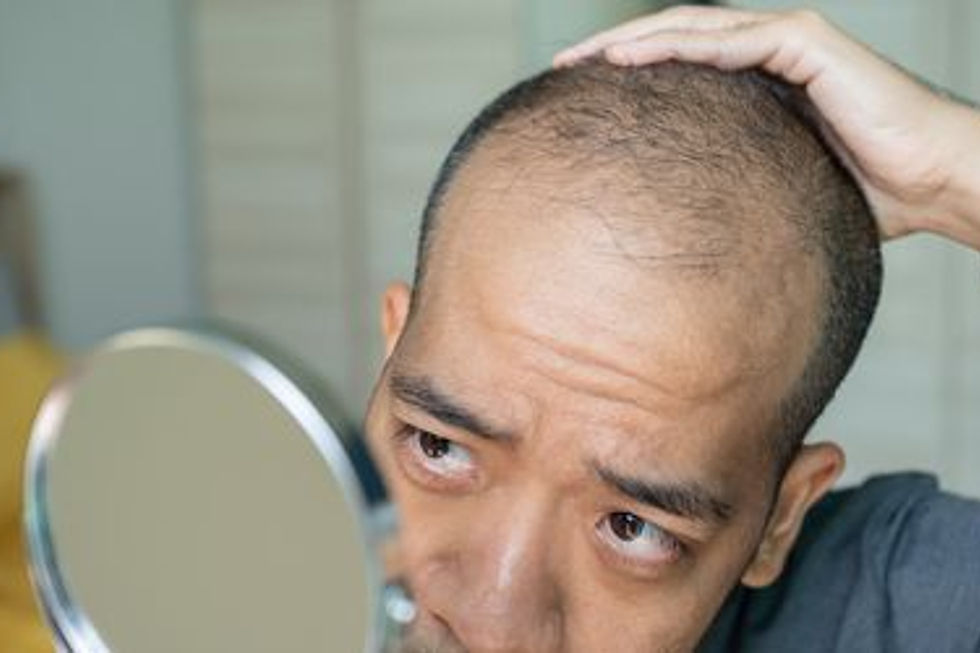Is the Celebrity Obsession with NAD+ Infusion Therapy Just a Trendy Illusion?
- israelantonionotic
- Feb 8
- 3 min read
Unmasking the Reality Behind NAD+ Infusion Therapy: Are Celebrities Chasing a Trend or a True Fountain of Youth?

In the world of celebrity wellness, cutting-edge treatments continuously emerge, capturing the attention and interest of stars and influencers alike. One such treatment attracting a wave of enthusiasm is NAD+ infusion therapy. Perceived as the latest "fountain of youth," many celebrities—Hailey Bieber among them—are leveraging this therapy to combat signs of aging and enhance overall well-being. With its promise of renewed energy and vitality, NAD+ is now a hot topic in discussions about longevity in Hollywood.
NAD+, short for nicotinamide adenine dinucleotide, is a coenzyme involved in numerous essential bodily functions, including energy metabolism, stress response, and DNA repair. Its levels are known to decline with age, leading to increased interest in treatments that purportedly boost NAD+ in the body. The allure is undeniable: who wouldn’t want to feel younger, more vibrant, and more alert? For example, journalist Rana Good, at 40 years old, turned to NAD+ therapy seeking a solution to boost her energy levels. “It was marketed as ‘the fountain of youth.’ It’s supposed to restore your energy and well-being,” she shared, resonating with the growing sentiment among those in health and wellness spheres.

Despite the buzz surrounding NAD+, it is essential to highlight that much of the hype is not backed by comprehensive scientific evidence. While wellness influencers hail NAD+ as a wonder drug capable of reversing or even curing aging, research on its efficacy in humans remains limited. Options like oral supplements exist, but many enthusiasts prefer the IV infusion method available in wellness clinics. However, these treatments can be exorbitantly priced, ranging from $200 to $1,500 per session, prompting concerns about whether consumers might be investing in a placebo effect rather than legitimate health benefits.
Experiences with NAD+ infusions can vary significantly. Good initially felt dizzy and nauseous during her session, although she noted improved sleep following the treatment. “Some users on TikTok reported feeling unwell or experiencing gastrointestinal problems,” she mentioned, illuminating the mixed responses that users may encounter. Critics warn that while some individuals might feel temporary benefits, the costs, discomfort, and potential risks – such as infection or adverse reactions – lead to doubts about the overall value of such therapies. Wellness professionals stress that credible research backing the claimed benefits is sparse, often limited to small studies that lack the scope to draw meaningful conclusions.
Richina Bicette-McCain, MD, emphasizes caution with NAD+ treatments, particularly given that the FDA has neither approved these infusions nor verified their safety and efficacy. A significant concern arises from the unsanitary conditions reported at some intravenous therapy clinics, increasing the risk of complications. Dr. Bicette-McCain warns consumers to thoroughly research facilities, ensuring that labs are reputable, staff are trained, and equipment is well maintained to mitigate health risks. She articulates that the lack of rigorous evidence to support NAD+ treatment’s effectiveness raises a red flag for anyone considering the procedure, urging individuals to explore more traditional avenues for health enhancement through diet and vitamin supplementation.
For those skeptical about the value of cuisine-centric wellness, Dr. Bicette-McCain advocates for alternative strategies to raise NAD+ levels naturally. Specifically, forms of vitamin B3, which include niacin and nicotinamide riboside, may aid the body in producing its own NAD+. This opinion is significant in a culture increasingly obsessed with instant fixes for longevity. "I would take B vitamin supplements and allow my body to naturally produce NAD," she states firmly, suggesting that the allure of quick treatments like IV infusions might not be necessary when sound nutritional practices and holistic approaches can provide similar results.
In summary, while NAD+ therapy might be experiencing a surge in popularity among the celebrity elite, the lack of substantial scientific evidence backing its effectiveness and the potential risks associated with undisciplined practice cannot be ignored. The conversation surrounding wellness and aging is ever-evolving, with new trends consistently capturing Hollywood’s attention. However, informed choices regarding health are paramount, suggesting that consumers remain cautious and prioritize sound medical advice over fleeting wellness fads. As we navigate the intersection of celebrity culture and health trends, it’s clear that while everyone seeks a youthful glow, perhaps the best route to longevity lies in time-tested health practices rather than expensive and unproven treatments.




Comments